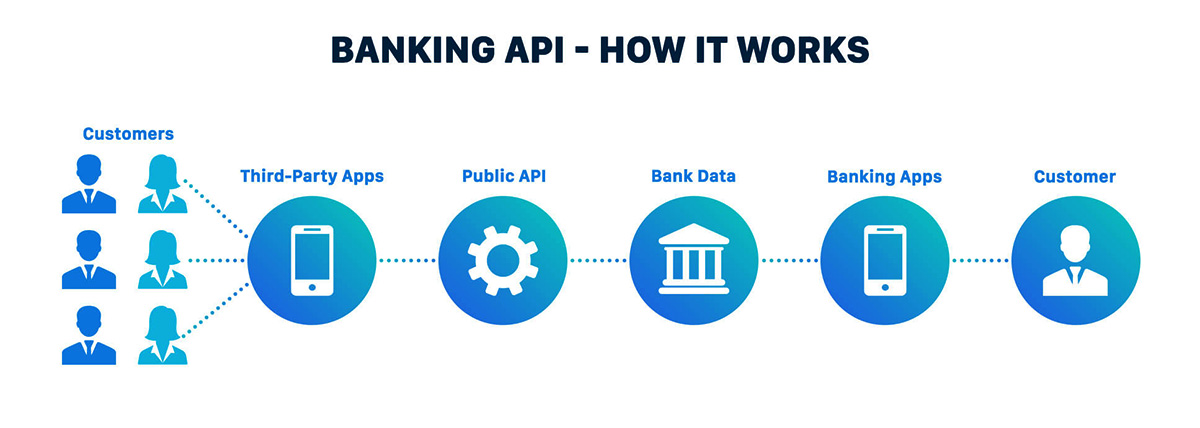Home>Finance>How To Become A Successful Life Insurance Agent


Finance
How To Become A Successful Life Insurance Agent
Published: October 16, 2023
Learn the tactics and strategies to become a successful life insurance agent in the finance industry. Enhance your career and boost your earnings with our expert tips.
(Many of the links in this article redirect to a specific reviewed product. Your purchase of these products through affiliate links helps to generate commission for LiveWell, at no extra cost. Learn more)
Table of Contents
- Introduction
- Understanding the Life Insurance Industry
- Obtaining the Necessary Licenses and Certifications
- Developing Strong Networking and Communication Skills
- Building a Solid Client Base
- Mastering Product Knowledge
- Effective Marketing and Lead Generation Strategies
- Providing Exceptional Customer Service
- Setting Realistic Goals and Developing a Business Plan
- Continuous Professional Development and Education
- Maintaining Ethical Standards and Compliance
- Conclusion
Introduction
Are you interested in embarking on a career in the finance industry? Are you a natural communicator with a passion for helping others? If so, becoming a successful life insurance agent might be the perfect fit for you.
Life insurance is an essential financial product that provides protection and financial security for individuals and their families. As a life insurance agent, you have the opportunity to guide clients through the process of choosing the right coverage and ensure that their loved ones are protected in the event of an unexpected tragedy.
While the life insurance industry can be highly competitive, with the right strategies and dedication, you can carve out a successful career for yourself. This article will provide you with the essential steps and skills you need to become a thriving life insurance agent.
From obtaining the necessary licenses and certifications to building a solid client base and developing effective marketing strategies, we will cover all aspects of launching a successful career in this field. Whether you’re starting from scratch or looking to enhance your existing skillset, this guide will equip you with the knowledge and tools you need to succeed.
So, grab a pen and paper, or open a blank document, because by the time you finish reading this article, you’ll be well on your way to becoming a successful life insurance agent.
Understanding the Life Insurance Industry
Before diving into the world of life insurance sales, it is crucial to have a solid understanding of the industry. Life insurance is a type of financial protection that pays out a sum of money to the designated beneficiaries upon the insured person’s death. It serves as a safeguard to ensure that loved ones are financially supported and can cover expenses such as outstanding debts, funeral costs, and ongoing living expenses.
There are two primary types of life insurance policies: term life insurance and permanent life insurance. Term life insurance provides coverage for a specified period, while permanent life insurance offers lifetime coverage alongside an investment component called cash value. Understanding the differences between these policies will help you guide clients in selecting the most suitable option for their needs.
In addition to the type of policy, it is essential to comprehend the various factors that influence life insurance premiums. Age, health, lifestyle, and the coverage amount required all play a role in determining the cost of a policy. As an agent, it is crucial to assess these factors to provide accurate quotes and recommendations to clients.
Moreover, staying updated with industry trends and changes is vital. Familiarize yourself with the ever-evolving regulations, policies, and market trends to ensure that you can provide clients with the most up-to-date and relevant information. This knowledge will help you stand out as a trusted advisor and enable you to tailor your offerings to meet the specific needs of your clients.
Lastly, it is important to recognize that the life insurance sector is built on trust and empathy. Inviting conversation around sensitive topics such as mortality and financial security requires a compassionate and understanding approach. Developing empathy and actively listening to your clients’ concerns will allow you to tailor solutions that are genuinely aligned with their needs, fostering strong and lasting relationships.
By thoroughly understanding the intricacies of the life insurance industry, you will position yourself as a knowledgeable and trustworthy professional, capable of guiding clients through the complexities of selecting the right policy for their unique circumstances.
Obtaining the Necessary Licenses and Certifications
To start your journey as a life insurance agent, it is crucial to obtain the necessary licenses and certifications. Each country and state has distinct requirements, so be sure to research and understand the specific regulations in your jurisdiction.
In most cases, you will need to complete a pre-licensing education program that covers the fundamentals of life insurance. This program typically consists of a specified number of hours of coursework and may be offered online or in-person. The curriculum will vary but commonly includes topics such as insurance principles, policy types, ethics, and legal regulations.
After completing your pre-licensing education, it’s time to take the licensing exam. The exam evaluates your understanding of the material covered in the coursework and ensures that you have the necessary knowledge to operate as a licensed life insurance agent. Study diligently and consider utilizing practice exams to increase your chances of success.
Once you have passed the licensing exam, you can apply for your life insurance agent license. This typically involves submitting an application, providing documentation, and paying any required fees. Be sure to carefully follow the instructions provided by the licensing authority to avoid any delays in obtaining your license.
In addition to the basic licensing requirements, pursuing professional certifications can provide a competitive edge and enhance your credibility as an agent. Organizations such as the American College of Finance (AMCF) offer various designations, such as the Chartered Life Underwriter (CLU) or the Certified Life Insurance Specialist (CLIS). These certifications require additional coursework and exams but demonstrate your commitment to professional development and expertise in the field.
Continued education and staying up-to-date with industry developments are also essential for maintaining your license. Many jurisdictions require agents to fulfill continuing education requirements to renew their licenses regularly. This ensures that agents remain knowledgeable about the latest regulations, products, and strategies, allowing them to provide the best service to their clients.
By obtaining the required licenses and certifications and investing in ongoing education, you demonstrate your commitment to professionalism and your dedication to serving your clients with the highest level of knowledge and expertise.
Developing Strong Networking and Communication Skills
As a life insurance agent, building strong networking and communication skills is crucial for establishing a successful career. Effective networking allows you to expand your professional connections, generate leads, and build relationships with potential clients and referral sources. Meanwhile, exceptional communication skills enable you to connect with clients on a deeper level, understand their needs, and effectively convey the value of life insurance.
1. Attend industry events: Start by attending conferences, seminars, and trade shows related to the insurance industry. These events provide excellent networking opportunities, allowing you to connect with fellow professionals, potential clients, and industry experts. Be prepared to introduce yourself, ask engaging questions, and exchange business cards.
2. Join professional organizations: Become a member of professional associations and organizations, such as the National Association of Insurance and Financial Advisors (NAIFA). These groups offer networking events and educational resources that can help you expand your network and keep up with industry trends.
3. Develop a strong online presence: Utilize social media platforms, such as LinkedIn, to connect with industry professionals and potential clients. Share relevant content, engage in discussions, and demonstrate your expertise. Additionally, consider starting a blog or podcast where you can provide valuable insights and establish yourself as a thought leader in the industry.
4. Attend community events: Participate in local community events and charities to increase your visibility and establish yourself as a trusted advisor. Show genuine interest in the well-being of the community and offer your expertise whenever appropriate.
Improving your communication skills is equally important. Here are some tips to enhance your communication prowess:
1. Active listening: Pay close attention to your clients’ concerns, needs, and goals. Show empathy and ask insightful questions to gain a deeper understanding of their unique situations. This will enable you to provide tailored solutions that meet their needs.
2. Simplify complex concepts: Life insurance can be intricate, with various policy types and terms. It is essential to communicate these concepts in a way that is easily understood by your clients. Avoid industry jargon and break down complex ideas into simple and relatable language.
3. Be a clear and persuasive communicator: Clearly explain the benefits and value of life insurance to your clients. Use compelling stories, real-life examples, and data to convince them of the importance of protecting their loved ones’ financial future.
4. Practice empathy and build trust: Build rapport and trust with your clients by showing genuine care and understanding. Empathize with their concerns and fears, and reassure them that you are there to guide and support them throughout the process.
Developing strong networking and communication skills will not only help you build a robust client base but also enable you to establish long-lasting relationships with your clients and become a trusted advisor in their financial lives.
Building a Solid Client Base
Building a solid client base is essential for a successful career as a life insurance agent. A strong client base not only provides a steady stream of business but also serves as a source of referrals and recommendations. Here are some strategies to help you build and expand your client base:
1. Define your target market: Identify the specific demographic or niche that you will focus on. This could be based on factors such as age, occupation, or income level. By narrowing down your target market, you can tailor your marketing efforts and provide specialized services that meet their unique needs.
2. Leverage your existing network: Start by reaching out to your friends, family, and acquaintances. Let them know about your career as a life insurance agent and ask for referrals. Personal recommendations carry a lot of weight, and your close connections may be willing to introduce you to potential clients.
3. Build strategic partnerships: Collaborate with professionals who interact with your target market, such as accountants, estate planners, or financial advisors. Establishing referral partnerships can be mutually beneficial, as they can refer their clients to you for life insurance needs, and you can reciprocate by referring clients who require their services.
4. Utilize online marketing: Create an engaging and informative website that showcases your expertise and provides valuable resources for potential clients. Optimize your website for search engines to increase its visibility. Additionally, use social media platforms and online advertising to reach a wider audience and generate leads.
5. Offer educational seminars: Organize seminars or workshops on topics related to life insurance and financial planning. This positions you as an expert in your field and allows you to educate potential clients on the importance of life insurance. You can partner with local community centers, libraries, or other venues to host these events.
6. Nurture relationships with existing clients: Building long-term relationships with your clients is crucial for generating referrals and repeat business. Provide exceptional customer service and regular communication to stay top-of-mind. Follow up with clients periodically to review their insurance needs and address any concerns they may have.
7. Ask for testimonials: Request testimonials from satisfied clients and display them on your website or marketing materials. Positive reviews and success stories can help prospective clients feel more confident in choosing you as their life insurance agent.
Remember, building a solid client base takes time and consistent effort. Focus on providing value, building trust, and demonstrating your expertise to attract and retain clients who will be the foundation of your successful career.
Mastering Product Knowledge
As a life insurance agent, mastering product knowledge is crucial to your success. Clients rely on your expertise to guide them in selecting the most suitable policies for their needs. Here are some strategies to ensure you have a strong grasp of product knowledge:
1. Study and research: Take the time to thoroughly study the different types of life insurance policies available, including term life insurance, whole life insurance, universal life insurance, and variable life insurance. Understand the features, benefits, and limitations of each policy so that you can effectively explain them to clients.
2. Stay updated with industry changes: The life insurance industry is constantly evolving. Stay informed about new product offerings, changes in regulations, and emerging trends. Attend training sessions, webinars, and industry conferences to stay up-to-date with the latest developments.
3. Utilize available resources: Take advantage of the resources provided by the insurance carriers you work with. They often offer training materials, product guides, and online resources to help agents understand their product offerings. Familiarize yourself with these resources and use them to enhance your knowledge.
4. Continuously improve your knowledge through professional development: Consider pursuing advanced designations and certifications, such as the Chartered Life Underwriter (CLU) or the Certified Life Insurance Specialist (CLIS). These programs provide in-depth knowledge and demonstrate your commitment to ongoing professional growth.
5. Practice explaining complex concepts: Life insurance can be complex, with various technical terms and calculations. Practice explaining these concepts to others in simple, relatable language. This will help you gain confidence in your ability to effectively communicate complex ideas to clients.
6. Ask for guidance from mentors and colleagues: Seek guidance from experienced agents or mentors in your agency or industry. They can provide insights, answer your questions, and share their experiences. Learning from the wisdom of those who have already mastered product knowledge can be invaluable.
7. Use case studies and real-life examples: Use case studies and real-life examples to illustrate the importance and value of life insurance. By sharing specific scenarios and demonstrating how insurance coverage can provide financial protection and support, you can help clients better understand the benefits of different policies.
Remember, clients rely on your expertise to make informed decisions about their life insurance needs. By mastering product knowledge, you will not only build trust and credibility with your clients but also become a valuable resource in helping them choose the policies that best suit their unique circumstances.
Effective Marketing and Lead Generation Strategies
Effective marketing and lead generation strategies are crucial for expanding your client base and gaining a competitive edge in the life insurance industry. By implementing targeted marketing techniques, you can reach your target audience, generate quality leads, and increase your chances of converting prospects into clients. Here are some strategies to consider:
1. Develop a comprehensive marketing plan: Create a well-defined marketing plan that outlines your goals, target audience, messaging, and tactics. Identify the most effective channels to reach your audience, such as digital advertising, content marketing, social media, and direct mail.
2. Invest in digital marketing: Leverage the power of online platforms to reach a wider audience. Develop a professional website optimized for search engines, create valuable content through blogs and videos, and maintain an active presence on social media platforms where your target audience congregates.
3. Utilize lead generation tools: Use lead generation tools and software to capture and manage leads more efficiently. Implement lead capture forms on your website, create compelling lead magnets, and automate follow-up emails to nurture leads and convert them into clients.
4. Network strategically: Attend industry conferences, trade shows, and networking events to connect with potential clients and referral sources. Build relationships with professionals who interact with your target market, such as financial advisors or estate planners, and collaborate on mutual lead generation opportunities.
5. Leverage online reviews and testimonials: Encourage satisfied clients to leave online reviews or provide testimonials that highlight their positive experiences working with you. Positive reviews can serve as social proof and help build trust with prospective clients.
6. Host educational webinars or seminars: Offer free educational webinars or seminars where you can share valuable insights and expertise on life insurance topics. These events not only position you as an authority in your field but also provide an opportunity to generate leads and nurture relationships with potential clients.
7. Implement referral programs: Develop referral programs that incentivize existing clients or business partners to refer their friends, family members, or colleagues to you. Word-of-mouth referrals are highly effective in generating quality leads and building a solid client base.
8. Monitor and analyze results: Regularly monitor the success of your marketing efforts and lead generation strategies. Utilize analytics tools to track website traffic, lead conversions, and engagement with your marketing campaigns. Analyze the data to identify areas for improvement and make data-driven decisions to refine your marketing approach.
By implementing effective marketing and lead generation strategies, you can increase your visibility, attract quality leads, and grow your client base. Remember to tailor your efforts to your target audience and continuously evaluate and refine your approach to ensure optimal results.
Providing Exceptional Customer Service
Exceptional customer service is a key factor in building strong client relationships and fostering loyalty in the life insurance industry. By prioritizing the needs and concerns of your clients, you can establish yourself as a trusted advisor and differentiate yourself from the competition. Here are some strategies to provide exceptional customer service:
1. Active listening and empathy: Take the time to actively listen to your clients and understand their unique needs and goals. Show empathy and genuine care for their concerns, and demonstrate that you are invested in finding the best solutions for them. This will help build trust and strengthen your client relationships.
2. Prompt and responsive communication: Be diligent in responding to client inquiries, whether they are through phone calls, emails, or messages. Prompt and reliable communication shows that you value your clients’ time and are committed to providing top-notch service.
3. Educate and inform: Keep your clients informed about their policy details, important updates, and any changes in the insurance industry that may affect them. Provide clear explanations and answer any questions they may have, ensuring they have a thorough understanding of their coverage.
4. Regular policy reviews: Schedule regular policy reviews with your clients to ensure their coverage still aligns with their changing needs. Use these opportunities to address any concerns, make necessary adjustments, and explore additional coverage options that may be beneficial for them.
5. Personalized service: Treat each client as an individual and provide personalized recommendations based on their unique circumstances and goals. Tailoring your advice and solutions to their specific needs demonstrates your commitment to their financial well-being.
6. Be proactive: Anticipate your clients’ needs and take proactive steps to meet them. Offer suggestions for policy enhancements or adjustments when appropriate, and keep them informed about new products and features that may be relevant to them.
7. High ethical standards: Maintain high ethical standards in all aspects of your work. Operate with integrity, ensuring that all client interactions are conducted in an honest and fair manner.
8. Continual support and follow-up: Provide ongoing support and follow-up with your clients even after the initial sale. This includes reaching out to them on important milestones, anniversaries, or policy renewals. Showing that you value their business and care about their long-term financial well-being will foster strong client loyalty.
Exceptional customer service is not only about meeting clients’ expectations but exceeding them. By consistently delivering outstanding service, you will build strong client relationships, generate positive word-of-mouth referrals, and establish yourself as a trusted and reliable life insurance agent in the industry.
Setting Realistic Goals and Developing a Business Plan
Setting realistic goals and developing a business plan is crucial for long-term success as a life insurance agent. By defining your objectives and creating a roadmap for your business, you can stay focused, measure your progress, and make informed decisions. Here are some steps to set realistic goals and develop an effective business plan:
1. Define your goals: Start by clearly identifying your short-term and long-term goals. These could include financial targets, client acquisition goals, or personal milestones. Make sure your goals are specific, measurable, attainable, relevant, and time-bound (SMART goals).
2. Conduct a SWOT analysis: Analyze your strengths, weaknesses, opportunities, and threats (SWOT) in the marketplace. Assess your unique skills, experience, and resources, as well as potential challenges or competition you may face. This analysis will inform your business plan and help you capitalize on your strengths while addressing weaknesses.
3. Identify your target market: Determine the specific demographic or niche you want to serve as a life insurance agent. Define their characteristics, needs, and preferences. Tailor your marketing efforts and service offerings to address and appeal to your target market’s specific requirements.
4. Develop a marketing and sales strategy: Outline your marketing and sales tactics to reach your target audience effectively. Define the channels you will utilize, such as online marketing, networking events, or referrals. Create a budget for your marketing activities and establish metrics for tracking the success of your strategies.
5. Financial planning and budgeting: Develop a financial plan that outlines your expected income, expenses, and profitability. Assess the costs associated with running your business, such as licensing fees, marketing expenses, and professional development courses. Set financial targets that align with your goals and regularly review your progress to make necessary adjustments.
6. Establish action steps and timelines: Break down your goals into actionable steps and assign timelines to each task. Create a timeline that outlines when you want to achieve specific goals or milestones. This will help you stay organized, focused, and accountable as you work towards your objectives.
7. Evaluate and adjust your plan: Regularly assess your progress and review your business plan. Analyze the effectiveness of your strategies and determine if any adjustments or refinements are needed. Stay flexible and adapt your plan as necessary to align with changes in the market or your personal circumstances.
Remember, setting realistic goals and developing a business plan provides you with direction and clarity in your journey as a life insurance agent. It allows you to measure your progress, make necessary adjustments, and position yourself for long-term success in the industry.
Continuous Professional Development and Education
In the ever-evolving world of life insurance, continuous professional development and education are crucial for staying ahead of the curve and maintaining a competitive edge. By investing in your knowledge and skills, you can provide the best service to your clients, adapt to industry changes, and advance your career. Here are some strategies for continuous professional development:
1. Pursue industry certifications and designations: Seek out industry-recognized certifications and designations to enhance your expertise and credibility. Examples include the Chartered Life Underwriter (CLU) or the Certified Life Insurance Specialist (CLIS). These programs require additional coursework and exams, allowing you to delve deeper into specialized areas of knowledge.
2. Attend workshops, conferences, and seminars: Take advantage of industry events, workshops, conferences, and seminars. These gatherings provide valuable opportunities to learn from industry experts, stay updated on the latest trends and regulations, and network with peers. Look for events that focus on topics relevant to your niche or areas of interest.
3. Engage in online learning: Leverage online platforms and resources that offer self-paced learning opportunities. Many industry associations and educational institutions offer online courses, webinars, and virtual conferences that allow you to enhance your knowledge at your own convenience. Explore topics such as advanced sales techniques, emerging insurance trends, or specific niche markets.
4. Join professional associations: Become an active member of professional associations such as the National Association of Insurance and Financial Advisors (NAIFA). These organizations offer various educational resources, webinars, and publications that keep you informed about industry best practices and help you stay connected with fellow professionals.
5. Read industry publications and books: Stay updated with industry news and trends by regularly reading industry publications, such as industry journals, magazines, and online blogs. Additionally, explore books written by influential professionals in the insurance field, as they often provide comprehensive insights and strategies.
6. Seek mentorship and coaching: Find a mentor or coach who can provide guidance and support in your professional development journey. A seasoned professional can offer valuable insights, share their experiences, and provide feedback to help you refine your skills and knowledge.
7. Participate in case studies and role-playing exercises: Engage in case studies and role-playing exercises to sharpen your skills in real-life scenarios. These practical exercises allow you to apply your knowledge, improve your problem-solving abilities, and refine your communication skills with clients.
Continuously investing in your professional development demonstrates your commitment to excellence and positions you as a trusted and knowledgeable expert in the eyes of your clients. Embrace the opportunity for lifelong learning, and stay curious and open-minded as you navigate the dynamic landscape of the life insurance industry.
Maintaining Ethical Standards and Compliance
Maintaining ethical standards and compliance is paramount in the field of life insurance. As a life insurance agent, your clients rely on you to provide them with accurate information, act in their best interests, and handle their personal and financial information with the utmost confidentiality. Here are some key considerations for maintaining ethical standards and compliance:
1. Familiarize yourself with industry regulations: Stay informed about the laws and regulations that govern the life insurance industry in your jurisdiction. Understand the rules regarding licensing, advertising, disclosure requirements, and the handling of client funds. Compliance with these regulations is crucial for operating within the legal framework and protecting your clients’ interests.
2. Act in the best interests of your clients: Always prioritize your clients’ needs and goals above your own. Provide honest and accurate information, and recommend policies that are genuinely aligned with their financial circumstances and objectives. Avoid any conflicts of interest that could compromise your clients’ trust or your integrity as a professional.
3. Maintain confidentiality: Safeguard your clients’ personal and financial information by maintaining strict confidentiality. Ensure that proper data protection measures are in place to prevent unauthorized access and use of sensitive information. Adhere to privacy laws and regulations governing the collection, storage, and sharing of client data.
4. Disclose compensation and potential conflicts: Be transparent about your compensation structure and any potential conflicts of interest. Clearly disclose to your clients how you are compensated for the policies you sell and any incentives or commissions you receive. This transparency helps build trust and ensures that clients have complete information when making decisions.
5. Communicate clearly and honestly: Practice open, honest, and transparent communication with your clients. Clearly explain policy terms, conditions, benefits, and costs, ensuring that clients fully understand what they are purchasing. Avoid using misleading or deceptive language and never make exaggerated claims about the benefits of a policy.
6. Continuously update your knowledge: Stay current with industry developments, including changes in regulations and ethical standards. Engage in ongoing professional development and education to enhance your knowledge and understanding of the ethical considerations and best practices in the life insurance industry.
7. Maintain accurate records: Keep detailed and accurate records of all client interactions, policy documentation, and transactions. This includes saving copies of written correspondence, policy applications, and any disclosures made to clients. Accurate record-keeping is not only crucial for compliance but also serves as a valuable reference for future client interactions or regulatory inquiries.
By upholding strong ethical standards and compliance, you not only protect your clients’ interests but also strengthen your reputation as a trustworthy and reliable life insurance agent. Embrace a culture of integrity, and let ethical conduct guide your interactions and decision-making as you serve your clients and contribute to the overall integrity of the industry.
Conclusion
Congratulations! You have now gained valuable insights and strategies for becoming a successful life insurance agent. As you embark on your journey, remember that success in the industry requires a combination of knowledge, skills, and dedication. By following the steps outlined in this guide, you can set yourself on the path to achieving your goals and building a thriving career.
Start by obtaining the necessary licenses and certifications, ensuring that you have a solid foundation of knowledge and expertise. Develop strong networking and communication skills to connect with potential clients and build meaningful relationships. Focus on building a solid client base through effective marketing strategies and exceptional customer service. Continually invest in your professional development and stay updated with industry trends to stay ahead of the competition.
Above all, maintain high ethical standards and comply with industry regulations. Your integrity and reputation are invaluable assets in the world of life insurance. Act in the best interests of your clients, communicate transparently, and handle their information with confidentiality and care.
Remember that success as a life insurance agent is built over time. Stay patient, persevere, and embrace the opportunities for growth and learning that come your way. The life insurance industry offers tremendous potential for both personal and professional fulfillment as you help individuals and families secure their financial futures.
Now, it’s time to put your knowledge into action. Take the first steps towards building your successful career as a life insurance agent, and make a positive impact on the lives of your clients. Good luck!














